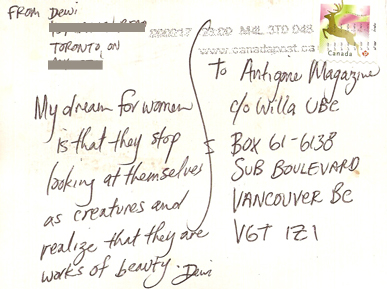 The “Take Back the Night” campaign to end sexual assault and abuse has the best intentions. But it is problematic because it perpetuates the idea that women’s sexual assault and abuse follows the dark night, man-behind-the bushes-with-a-knife narrative. In reality, the “night” is a constructed demon. All too often abusers closely mimic the warmth and appearance of sunshine.
The “Take Back the Night” campaign to end sexual assault and abuse has the best intentions. But it is problematic because it perpetuates the idea that women’s sexual assault and abuse follows the dark night, man-behind-the bushes-with-a-knife narrative. In reality, the “night” is a constructed demon. All too often abusers closely mimic the warmth and appearance of sunshine.
Traditional stereotypes for profiling bad guys completely fail us when it comes to identifying abusers. Abusers come in all shapes and sizes, and oftentimes they capitalize on their normal appearance and normative success in order to persuade us of their goodness. The “Take Back the Night” campaign is a symbolic reduction—an oversimplification—of the experience of assault and abuse. It implies that women are assaulted suddenly by a stranger when they are alone at night. In reality assault and abuse can be short to long term projects where the predator chips away at the victim’s protective walls. According to Statistics Canada, 80% of sexual assault survivors knew their abusers (Statistics Canada 2003). Assault and abuse are usually psychological as well as physical projects, leaving the victim distressed with complicated grief.
So it isn’t a particular profile or scene we need to avoid in order to protect ourselves. Instead, it is a particular pattern within our existing relationships that we need to look for: a pattern of power asymmetry. Sexual assault and abuse is a function of unequal pattern relations; it happens when the abuser establishes dominance over you. We need to work on strengthening our discriminatory power until we become pros at identifying the problematic power structures that constitute assault or abuse. The fact is that women are not educated enough about their rights. Certainly, we are familiar with and celebrate the equality we are entitled to in politics and law, but many of us forget that we are entitled to the same equality in the relationships that comprise our everyday lives.
Inequality in romantic relationships has become so normalized in our culture that we now romanticize the idea of the man that yields power over us. The popular Twilight Saga by Stephenie Meyer portrays power asymmetry as an enviable relationship dynamic. Bella’s obsession with Edward shows that he yields enormous power over her, and his paternalistic babysitting is patronizing. The idealization of an unequal power relationship sends a negative message to women. Women today should be taught that a healthy relationship should leave them feeling empowered, not disempowered.
In preparation for the traditional rape narrative we have rape whistles. But there is no simple tool for blowing the whistle on everyday toxic relationships. We want to ask you if you have any ideas on how we can help facilitate a better understanding of the importance of power symmetry in relationships. You can suggest a conceptual theory, a slogan, or even a symbolic artefact.








You must be logged in to post a comment.